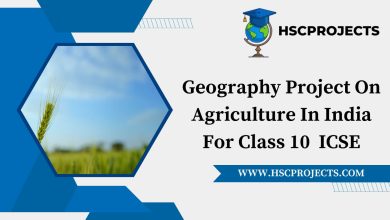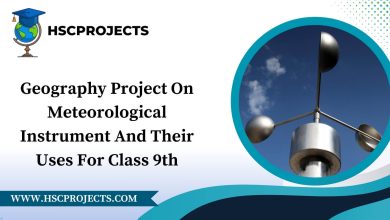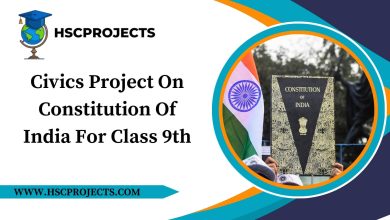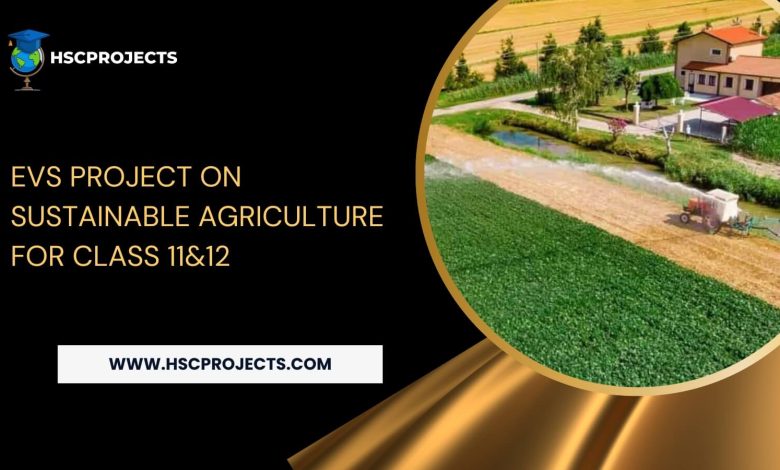
EVS Project On Sustainable Agriculture For Class 11&12
Acknowledgments
This project represents a collective endeavor that would not have been possible without the invaluable contributions and support from various individuals and organizations. As we extend our heartfelt gratitude, we acknowledge those who have played pivotal roles in shaping and enriching this exploration of sustainable agriculture.
First and foremost, we express our appreciation to the experts and researchers whose work forms the bedrock of our project. Their dedication to advancing knowledge in the field of sustainable agriculture has been an inspiration and a guiding light throughout our research journey.
We extend sincere thanks to the mentors and advisors who generously shared their insights and expertise, providing invaluable guidance that has undoubtedly elevated the quality and depth of this project.
Special gratitude is extended to the farmers and communities who graciously opened their doors to share their experiences and insights. Their real-world examples have brought depth and authenticity to our understanding of sustainable agriculture, making this project not just a theoretical endeavor but a reflection of practical wisdom.
The support of friends and family has been an unwavering source of encouragement. Their understanding, patience, and encouragement during the various stages of this project have been instrumental in its completion.
We also acknowledge the role of technological advancements that facilitated our research process. The availability of digital resources, databases, and communication tools has played a crucial role in navigating the vast landscape of sustainable agriculture.
Finally, we express our gratitude to the wider academic and environmental community. The exchange of ideas and the shared commitment to sustainable practices have created a dynamic and inspiring context for this exploration.
To each individual and organization mentioned, and to those who may remain unnamed but have contributed in their own way, we offer our sincere thanks. Your collective efforts have shaped this project into a comprehensive and meaningful exploration of sustainable agriculture, underscoring the importance of collaborative endeavors in addressing the challenges and opportunities that lie ahead.
Introduction
In the ever-evolving landscape of agriculture, the imperative to adopt sustainable practices has become a clarion call for the future of our planet. This project embarks on a comprehensive exploration of sustainable agriculture, dissecting its definition, underscoring its importance, and scrutinizing its potential impact on the global agricultural paradigm. As we stand witness to a world grappling with environmental challenges and the consequences of conventional farming methods, the need for a transformative approach to agriculture has never been more pressing.
Sustainable agriculture, at its core, represents a holistic philosophy that seeks to harmonize the delicate balance between food production, environmental health, and long-term resource viability. This undertaking is not merely a theoretical pursuit; it is a pragmatic response to the staggering statistics of a growing global population, increasing food demands, and the undeniable strain these place on our ecosystems.
Through the lens of this project, we embark on a journey to unravel the multifaceted dimensions of sustainable agriculture. We set forth clear objectives: to understand the concept of sustainability in agriculture, analyze the environmental impact of conventional farming practices, and explore sustainable alternatives that promise not just sustenance but also stewardship of our environment.
The dichotomy between conventional and sustainable agriculture serves as a focal point for our inquiry. We delve into the practices of conventional agriculture—characterized by chemical inputs, monoculture, and intensive irrigation—and uncover the profound environmental repercussions, including soil degradation, water pollution, and loss of biodiversity. Concurrently, we illuminate the principles of sustainable agriculture, advocating for practices such as crop rotation, agroforestry, organic farming, and conservation tillage that aim to restore and preserve the delicate balance of our ecosystems.
This exploration is not confined to theoretical considerations. It extends to the practical realm with an in-depth examination of sustainable agriculture practices, including organic farming, crop rotation, agroecology, and water conservation techniques. The project also unfolds real-world case studies, spotlighting successful instances where sustainable agriculture has been embraced and thrived.
In the wake of technological advancements, we investigate the role of technology in sustainable agriculture, with a focus on precision farming, the Internet of Things (IoT), and innovative apps and platforms that empower farmers to make informed, sustainable choices. Looking to the horizon, we ponder the future prospects of sustainable agriculture, offering recommendations for widespread adoption, advocating for supportive policies, and emphasizing the pivotal role of community involvement and awareness.
As we navigate through the intricate tapestry of sustainable agriculture, this project serves as a compass, guiding us towards a future where farming is not just a means of sustenance but a pledge to nurture and preserve the very foundation of our existence—the Earth.
Objectives of the Project
- Understanding the concept of sustainability in agriculture: Delving into the very essence of sustainability, we aim to grasp the core principles that guide agricultural practices towards a more balanced and enduring future.
- Analyzing the impact of conventional agriculture on the environment: Unmasking the repercussions of traditional farming methods, we intend to spotlight the toll these practices take on our ecosystems and natural resources.
- Exploring sustainable agriculture practices as an alternative: In this exploration, our focus is on alternative methods that promise a more symbiotic relationship between agriculture and the environment.
Conventional Agriculture vs. Sustainable Agriculture
Practices in Conventional Agriculture
- Use of chemical: fertilizers The conventional approach heavily relies on synthetic fertilizers, a practice that poses threats to soil health and long-term sustainability.
- Pesticide: application Widespread pesticide use in conventional farming raises concerns about its impact on both the environment and human health.Monoculture Monoculture, a common practice in conventional agriculture, risks depleting soil nutrients and increases vulnerability to pests and diseases.
- Irrigation practices: Conventional farming often employs water-intensive irrigation methods, contributing to water scarcity issues
Environmental Impact of Conventional Agriculture
- Soil degradation: Continuous use of chemical inputs in conventional agriculture accelerates soil degradation, jeopardizing the foundation of sustainable farming.
- Water pollution: Runoff from pesticides and fertilizers contaminates water sources, posing a serious threat to aquatic ecosystems.
- Loss of biodiversity: Monoculture and chemical-intensive practices contribute to the decline of biodiversity, disrupting natural ecosystems.
Principles of Sustainable Agriculture
- Crop rotation: Shifting from the monotony of monoculture, crop rotation becomes a cornerstone, enhancing soil fertility and reducing the risk of pests.
- Agroforestry: integrating trees into agricultural landscapes promotes biodiversity, conserves soil, and contributes to sustainable land use.
- Organic farming: Embracing organic farming practices minimizes reliance on synthetic inputs, fostering a more balanced and resilient farming system.
- Conservation tillage: Sustainable agriculture emphasizes reduced tillage to conserve soil structure and minimize erosion.
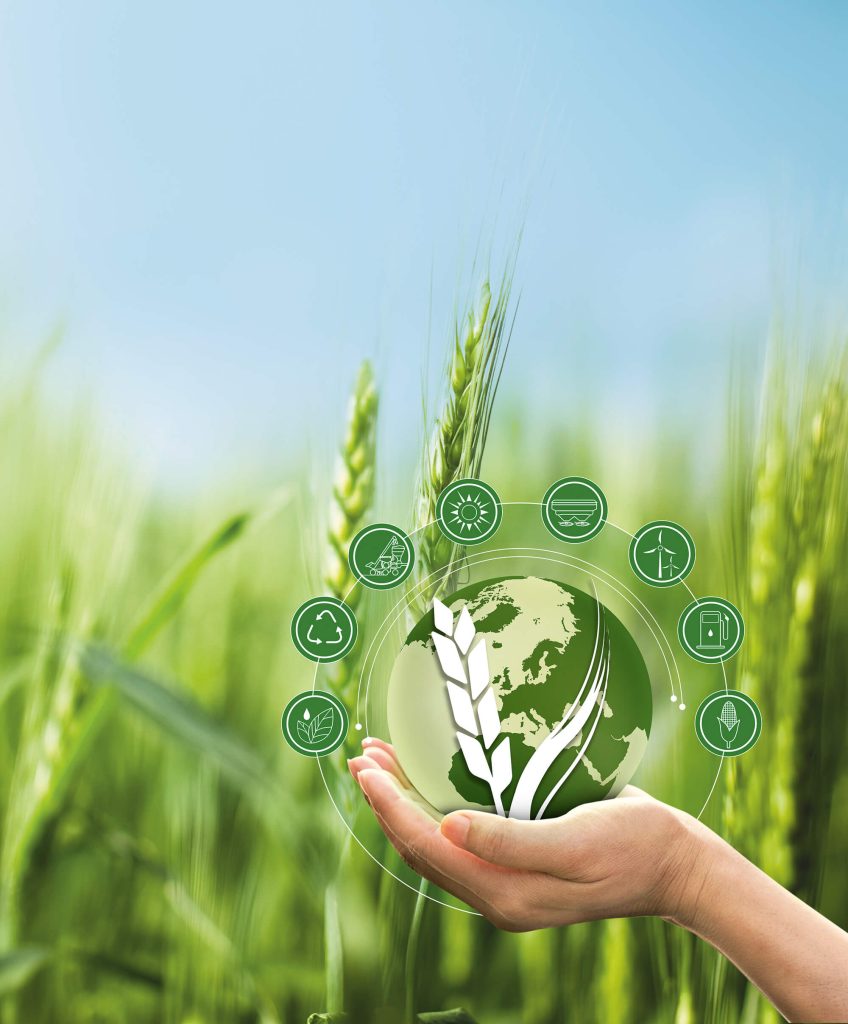
Sustainable Agriculture Practices
Organic Farming
- Benefits of organic farming: Organic farming not only produces healthier food but also nurtures soil health and biodiversity.
- Challenges and solutions: Overcoming challenges such as pest control in organic farming requires innovative solutions like integrated pest management.
Crop Rotation and Diversification
- Importance of crop rotation: The strategic rotation of crops enhances soil fertility, reduces pest pressure, and contributes to sustainable agriculture.
- Benefits of crop diversification: Diversifying crops mitigates risks associated with monoculture and fosters a resilient agricultural system.
Agroecology
- Integrating ecological principles into agriculture: Agroecology harmonizes farming with ecological principles, emphasizing the interconnectedness of agriculture and the environment.
- Enhancing biodiversity on farms: By promoting diverse ecosystems on farms, agroecology contributes to natural pest control and sustainable land use.
Water Conservation Techniques
- Drip irrigation: Precision in water application through drip irrigation minimizes water wastage, a crucial aspect of sustainable water management.
- Rainwater harvesting: Harnessing rainwater reduces reliance on external water sources, promoting self-sufficiency in agriculture.
Case Studies
- Successful Examples of Sustainable Agriculture
- Case study on a farm practicing organic farming: Examining a farm’s journey in adopting organic practices and reaping the benefits in terms of soil health and market demand.
- Case study on a community adopting agroecological principles: Showcasing a community’s transition towards agroecology, detailing the positive ecological impact and community engagement.
Challenges in Implementing Sustainable Agriculture
- Economic challenges: The transition to sustainable agriculture may face economic hurdles, requiring innovative solutions and policy support.
- Lack of awareness: Bridging the awareness gap is crucial to garner support for sustainable agriculture practices among farmers and consumers.
- Policy issues: Addressing policy barriers and advocating for supportive agricultural policies are pivotal for widespread adoption of sustainable practices.
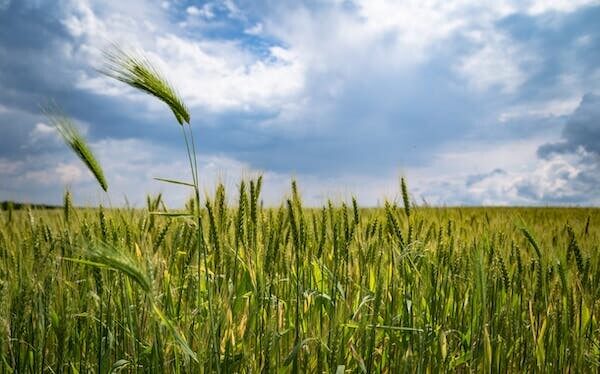
Conclusion
In conclusion, the journey through the realms of sustainable agriculture unveils a path towards a more harmonious coexistence between humanity and the environment. The importance of embracing sustainable practices cannot be overstated, as evidenced by the environmental degradation and challenges posed by conventional agriculture. The shift towards sustainable agriculture involves not only a change in farming practices but a holistic transformation encompassing technology, policies, and community engagement.
As we stand at the crossroads of agricultural practices, the role of technology, precision farming, and community awareness becomes increasingly pivotal. The future prospects of widespread adoption of sustainable practices hold promise, provided we navigate economic challenges and advocate for supportive policies. It is imperative to recognize the interconnectedness of sustainable agriculture, technological innovation, and community involvement in shaping a resilient and environmentally conscious future.
Encouraging students to champion sustainable practices emerges as a call to action, cultivating a generation that views agriculture not just as a means of production but as a stewardship of the Earth. Through collaborative efforts, informed decision-making, and a commitment to change, we can pave the way for a sustainable agricultural landscape that nourishes both people and the planet.
Bibliography
- Altieri, M. A. (1995). Agroecology: The Science of Sustainable Agriculture. CRC Press. Link
- Pretty, J. (2008). Agricultural sustainability: concepts, principles and evidence. Philosophical Transactions of the Royal Society B: Biological Sciences, 363(1491), 447-465. Link
- Reganold, J. P., & Wachter, J. M. (2016). Organic agriculture in the twenty-first century. Nature Plants, 2(2), 15221. Link
- Tilman, D., & Clark, M. (2014). Global diets link environmental sustainability and human health. Nature, 515(7528), 518-522. Link
- FAO. (2019). The State of Food Security and Nutrition in the World 2019. Food and Agriculture Organization of the United Nations. Link
- Rockström, J., et al. (2009). A safe operating space for humanity. Nature, 461(7263), 472-475. Link
- Giller, K. E., et al. (2015). Closing the yield gap through nutrient and water management. Nature, 517(7534), 359-365. Link
Certificate of Completion
[Student’s Name][Class/Grade Level]This is to certify that I, [Student’s Name], a [Class/Grade Level] student, have successfully completed the “EVS Project on SUSTAINABLE AGRICULTURE for class 11&12.” The project explores the fundamental principles and key aspects of the chosen topic, providing a comprehensive understanding of its significance and implications.
In this project, I delved into in-depth research and analysis, investigating various facets and relevant theories related to the chosen topic. I demonstrated dedication, diligence, and a high level of sincerity throughout the project’s completion.
Key Achievements:
Thoroughly researched and analyzed Project on EVS Project on SUSTAINABLE AGRICULTURE for class 11&12.
Examined the historical background and evolution of the subject matter.
Explored the contributions of notable figures in the field.
Investigated the key theories and principles associated with the topic.
Discussed practical applications and real-world implications.
Considered critical viewpoints and alternative theories, fostering a well-rounded understanding.
This project has significantly enhanced my knowledge and critical thinking skills in the chosen field of study. It reflects my commitment to academic excellence and the pursuit of knowledge.
Date: [Date of Completion]Signature: [Your Signature] [School/Institution Name][Teacher’s/Examiner’s Name and Signature]
In order to download the PDF, You must follow on Youtube. Once done, Click on Submit
Follow On YoutubeSubscribed? Click on Confirm
Download EVS Project On Sustainable Agriculture For Class 11&12 PDF



